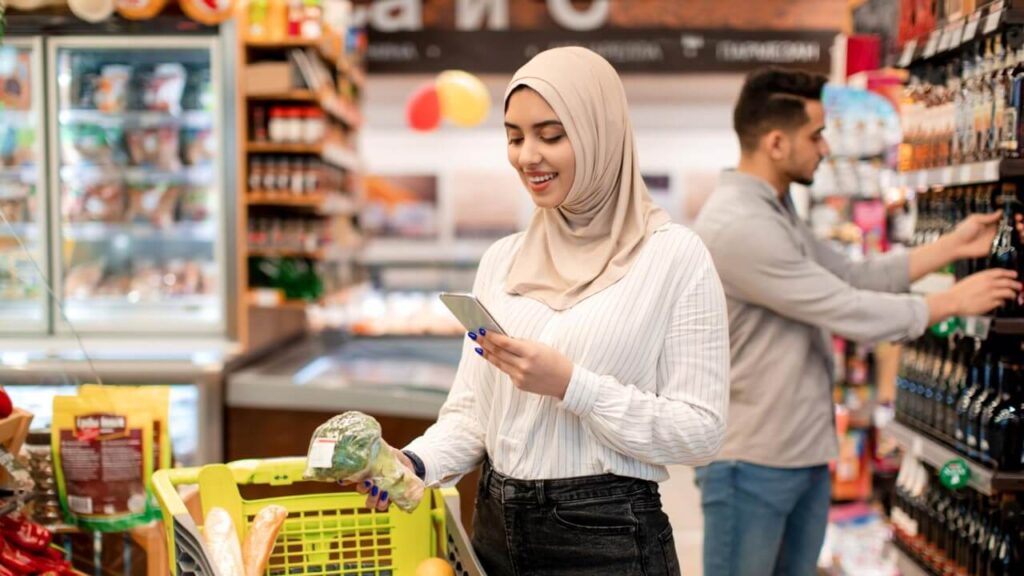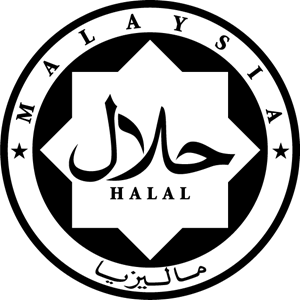What is Halal Certification?
Halal certification is a process that ensures products or services meet the strict guidelines set by Islamic law (Shariah). This certification guarantees that all aspects of production, processing, and handling adhere to Islamic principles, making the products permissible (Halal) for Muslim consumers.
The certification process in Malaysia is overseen by Jabatan Kemajuan Islam Malaysia (JAKIM), which translates to the Department of Islamic Development Malaysia. It ensures compliance with Malaysian Halal Standards (MS 1500:2019), which are recognized internationally. With over 63% of the Malaysian population being Muslim, obtaining Halal certification is crucial for businesses aiming to cater to the majority market.
SQC is dedicated to helping organizations navigate the complexities of Halal certification. From initial assessments to documentation, facility reviews, and application submissions, SQC provides comprehensive support to ensure your business achieves and maintains Halal compliance.
Who Can Apply for Halal Certification?
Halal certification is applicable across various industries. Eligible businesses include:
- Manufacturer/ producer: Companies that produce food and beverage products, pharmaceuticals, cosmetics, and personal care items.
- Distributor/ trader: Businesses that import, export, or distribute Halal-certified products.
- Sub-contract manufacturer: Companies that provide services or materials to Halal-certified businesses.
- Repacking: Businesses that repackage Halal-certified products.
- Food premise: Restaurants, cafes, canteens, and other food service establishments.
- Abattoir/slaughterhouse: Facilities that slaughter animals for meat production.

Requirements to Apply for the Halal Certificate in Malaysia
To successfully apply for a Halal certificate in Malaysia, businesses must provide comprehensive documentation and details that demonstrate their compliance with Halal standards as outlined by the Department of Islamic Development Malaysia (JAKIM).
- Company profile: A detailed overview of the company, including its history, operations, and organizational structure.
- Company/business registration: Official business registration documents, such as the Suruhanjaya Syarikat Malaysia (SSM) certificate, to confirm that the business is legally registered in Malaysia.
- Name and description of product/menu for certification: A comprehensive list of all products or menu items for which Halal certification is sought.
- Ingredients used: A complete list of all ingredients and additives used in the production process.
- Name and address of manufacturer/ingredient supplier: Information about all suppliers of raw materials, including their names, addresses, and contact details.
- Halal status for ingredients: For each ingredient, businesses must provide a valid Halal certificate from an accredited certification body.
- Type of packaging material: Details about the packaging materials used for the products.
- Manufacturing process and procedure: A step-by-step description of the manufacturing process, including the preparation and handling of ingredients, storage and transportation procedures, and cleaning protocols for equipment and facilities.
- Location map of premise/factory: A detailed location map of the production facility, storage, or retail premises.
- Supporting documents: HACCP, ISO, GHP, GMP, TQM, etc.

Malaysian Standard for HALAL
- Akta Perihal Dagangan 1972 (Perintah Perihal Dagangan (Penggunaan Perbahasaan HALAL) 1975)
- Akta Makanan 1983 (Kementerian Kesihatan) – Berhubung perlebalan, amalan kebersihan dan keselamatan makanan
- Animal Ordinance 1953 dan Animal Rules 1962 (Jabatan Perkhidmatan Haiwan) – Berhubung penternakan haiwan, kawalan penyakit dll
- Akta Kastam 1988 – Berhubung import/eksport daging HALAL
- Akta/Enakmen Jenayah Syariah – Penandaan HALAL
- Akta Kerajaan Tempatan 1976 (Akta 171) dan Undang-undang Kecil Pihak Berkuasa Tempatan
- Akta Cap Dagangan 1976
Benefits of Obtaining Halal Certification
Obtaining a halal certification offers significant advantages for your organization:
Competitive Advantage
Halal certification distinguishes your business in a competitive market by meeting the specific needs of Muslim consumers. Displaying the Halal logo on your products or services will position your brand as the preferred choice for customers who prioritize Halal compliance.
Increased Market Reach
Halal certification is widely recognized by international authorities, opening doors to new markets and trade opportunities. By aligning with Islamic principles, companies can attract new customer segments and gain a substantial share of the rapidly growing global Halal market.
Increased Trust & Credibility
Halal certification assures Muslim consumers that your products comply with Islamic guidelines, addressing their religious and ethical concerns. The certification process involves stringent quality and safety standards, positioning your business as a trusted and ethical choice for consumers.
Enhance brand image and reputation
The Halal logo is a symbol of compliance with Islamic principles, which resonates strongly with Muslim consumers and instills confidence in your business’s products or services. Halal certification fosters loyalty among existing customers and attracts new ones, enhancing your brand’s reputation both locally and internationally.
Improved Quality Control
Halal certification requires businesses to adhere to strict guidelines and standards. Halal-certified businesses not only meet religious compliance but also deliver high-quality, safe, and ethically produced products that resonate with both Muslim and non-Muslim consumers.
The Halal Certification Process
At SQC, our comprehensive Halal consultancy services guide your business through every step of the Halal certification process, ensuring compliance with recognized standards like Malaysian Halal Standards (MS 1500:2019) and helping your organization achieve long-term success in the Halal market. Our process includes:
Initial Consultation and Assessment
We conduct a thorough analysis to review your organization’s current practices and identify areas needing improvement for Halal compliance.
Planning and Customization
We assist in developing a tailored plan for Halal compliance by addressing identified gaps and aligning your processes with Halal standards. This involves defining the scope of Halal compliance across relevant products, services, and departments, setting realistic timelines for implementation, and collaborating with your team to establish a structured schedule and actionable steps for achieving compliance.
Training and Implementation
Working alongside your team, we support the rollout of new processes identified during the assessment. Our targeted training sessions ensure employees understand the principles of Halal compliance and their role in maintaining Halal standards and practices to prevent cross-contamination. We also establish internal monitoring systems to ensure continued compliance.
Pre-Certification and Audit Support
Before the certification audit, we conduct a pre-certification audit to evaluate your organization’s readiness. Our team helps implement corrective actions if needed and assists with preparing and organizing the required documents. We will guide you through the final certification audit process to ensure success.
Continuous Support and Improvement
After achieving halal certification, we will conduct periodic reviews to maintain compliance. SQC will provide ongoing support to adapt to regulatory updates and industry changes post-certification.

Why Choose SQC?
Proven Expertise and Industry Knowledge
With years of experience in Halal consultancy, we possess an in-depth understanding of Halal standards, certification processes, and regulatory requirements. Our expertise spans diverse industries, including food and beverages, cosmetics, pharmaceuticals, logistics, and hospitality.
Tailored Solutions for Your Business
We recognize that each business has unique needs. SQC offers personalized consultancy services, providing customized plans, gap analysis, and actionable steps that align with your specific operations, products, and industry.
End-to-End Support
From the initial consultation to post-certification compliance, SQC supports your business at every stage of the Halal certification journey. Our comprehensive services include documentation preparation, facility reviews, pre-audit evaluations, and ongoing compliance checks.
Dedicated Team of Experts
Our experienced consultants work closely with your team, offering targeted training sessions and practical guidance to ensure your employees understand and maintain Halal compliance in daily operations.
FAQs on Halal Certification
What is Halal certification?
Halal certification is a formal process of verifying products and services adhere to Islamic principles. The certification allows consumers to know that the product/service meets Malaysia’s standards for a halal product.
Why is Halal Certification important for my business?
Obtaining halal certification is a strategic move that offers significant advantages for your business both locally and globally. It positions your products or services as the preferred choice in a competitive market, particularly among Muslim consumers. With over 63% of Malaysia’s population being Muslim, Halal certification is essential for businesses aiming to build trust and appeal to the majority market.
Who can apply for Halal certification?
Halal certification is available to businesses across various industries, including manufacturers and producers of food, beverages, pharmaceuticals, cosmetics, and personal care products. Distributors, traders, sub-contract manufacturers, and repacking businesses handling Halal-certified products are also eligible. Additionally, food premises such as restaurants and canteens, as well as abattoirs and slaughterhouses, can apply.
How long does it take to achieve Halal certification?
The time required to achieve Halal certification can vary depending on factors such as the type of business, the complexity of its processes, and the readiness of the applicant. Get in touch with our consultants to find out more.
How long will your halal certification last?
The Halal certificate is valid for two years for food premises, as well as food and beverage products. For abattoirs, the certificate is valid for one year, while it remains valid for three years for other categories such as logistics, OEM, cosmetics, and pharmaceutical products.
Can I apply for a halal certification without a consultant?
While it is possible to obtain a halal certification without a consultant, many organizations find that working with a consultant can streamline the process. Consultants provide expertise and resources, helping companies save time and ensure smooth certification.
Is Halal certification recognized internationally?
Yes, Halal certification from reputable bodies like JAKIM (Malaysia) is widely recognized globally, allowing businesses to enter Muslim-majority markets such as Indonesia, Saudi Arabia, and the UAE.
Open New Markets with Halal Certification
Enhance your brand’s credibility and expand into the global Halal market with SQC’s expert Halal consultancy services. Our team will guide you through the certification process to ensure your products and practices meet the highest Halal standards.
Ready to start your certification journey? Contact us today to learn more!
